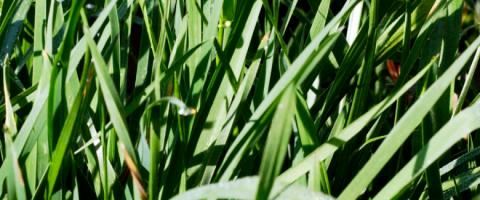Posted March 14th, 2024

* Hey Farmers - Are you sourcing hard-to-find seed directly from Albert Lea or Welter Seed? Do you know we order from those seed houses twice a year (early March and late July). We are happy to pool orders whenever it makes sense to save you freight (and us, too). Reach out to melinda@cfhsupply.com to coordinate.
Whether you're interested in improving your soil's nutrition, feeding livestock, attracting wildlife, or simply greening your lawn, check out our seed selection. The link below will provide you with a complete list of cool season annual and perennial seeds with pricing by the pound or 50lb. bag.
As you are planning, here are a couple of other resources that may be helpful...
Need to know seeding rates for particular crops? Check out the Forage Planting Guide for North Carolina.
Want to plant a cover crop for your garden but not sure where to get started? Check out our notes from Chatham County's Agricultural Extension Workshop on Cover Crops.
And of course, you're always welcome to stop by and chat with us! We're here to help.
Teachable Moment: Not All Seed Is Created Equal

We sometimes field phone calls from customers calling around comparing our seed prices to that of Tractor Supply, Lowes, and Southern States. If you shop around for the best deal, have you ever asked about purity, germination rate, test date, coating, noxious weed? All of these impact the quality of seed and therefore, the price. So... let's learn a little about what all of that means by looking at the seed tag above as an example.
- Pure Seed - Refers to the % of the seed you are wishing to purchase in the bag, in this case Kentucky 31. You will never find 100%. There is always going to be a little dirt, chaff, or some other seeds that were mixed into the harvest from that crop. Ours is 98%. Most of our competitors offer a 95% purity as an economy option which means there is more "other" seed and/or dirt/chaff in the bag.
- Weed Seed/ Noxious Seed - Most people don't like weeds. It's virtually impossible to remove all of them in a field that is harvesting seed, but the goal is to have as little as possible. Noxious seed refers to seed that will very easily spread and overtake a field. It is not allowed in seed bags, and if it is found by a seed inspector, that seed must be pulled.
- Germination - This is the percent of seed found to germinate when tested. This tag is a little hard to read, but this seed has an 85% germination rate which is considered very good for fescue.
- Test Date - This refers to the last time this seed was tested before being put on the market and should be important to you as you consider germination. A seed's germination will decrease as it sits, so you should always try to buy seed with recent test dates. Having said that, keep in mind that seed crops are only havested once a year so expect to see 2020 dates when shopping for seed in Spring 2021.
- Coated or Raw - The seed tag above does not note coating. That means this seed is raw. Just a few years ago, you would never find coated fescue seed in the marketplace. Now, the game has changed. Why? Well, some may tell you that the coating improves germination or moisture retention, but I am personally in the camp that believes it is nothing more than a sneaky marketing trick. When fescue prices spiked a couple of years ago, all of a sudden there was coated grass seed on the market. That coating can take up 30-40% of a bag's weight, so when you buy a 50lb. bag of seed, you may only be buying 30lbs. of seed. The seed costs a little less, and you may think you are getting a great deal... but are you really? We pride ourselves in only stocking raw seed unless we have no other options available.
How do you know you can trust the seed tag? Well, did you know that every year stores like ours that sell seed must pay a fee to the state to be licensed to sell seed? That fee pays for state inspectors to travel around and randomly pull samples from bags and send them to a lab for testing. When seed is tested in our store, I get an inspection report. If seed tests better than labeled, then great, but if there is an issue that makes the seed worse than tagged, the seed must either be relabeled or completely pulled from the sales floor. All of this trouble so you, the consumer, can trust what you are buying. So next time, don't just ask for price; ask to see a seed tag! We'd be happy to snap a photo and text it to you!